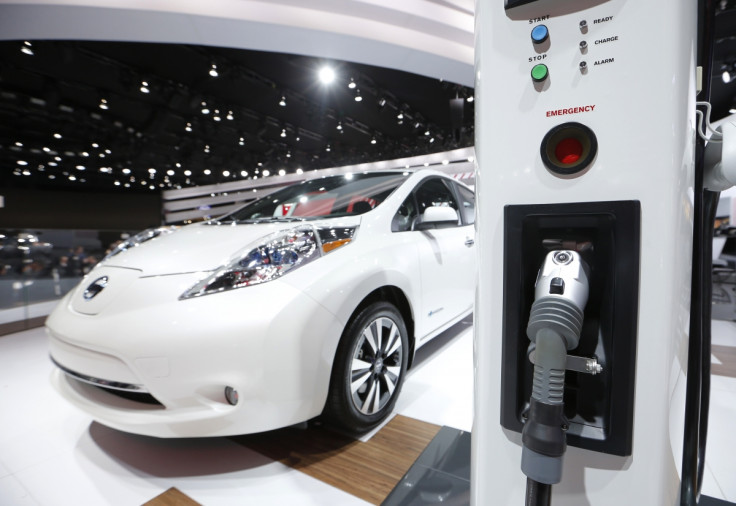British Nissan Leaf owners could soon sell energy back to the grid via xStorage

Owners of Nissan's electric vehicle in the UK could soon have the option of selling spare electricity back to the National Grid, the high-voltage electric power transmission network in the country. On 10 May, the Japanese automaker announced a new home energy-storage device, called xStorage, which is said to be made from its Leaf electric car's recycled batteries.
This device, which will be available from October, will be powered by 12 Nissan Leaf battery modules and will be connected to a residential power supply. It will get charged either from the grid, when energy is available at a cheaper rate, which is usually at nights, or from solar and other renewable energy sources.
Once charged, the xStorage can be used to power one's homes. Users will also have the option of selling excess or spare energy back to the grid.
Steve Holliday, the former chief executive of National Grid, said users of the xStorage system will initially be allowed to sell the power back to the grid only through aggregator clubs. He, however, added that they would be able to sell on an individual basis after two to three years.
Nissan, which is UK's biggest car producer, has partnered with power management company Eaton, to develop this product. Expected to be priced at £3,200 (€4,060, $4,621), the xStorage is touted to be a direct competitor to Powerwall, a rechargeable lithium-ion battery product manufactured by Tesla Motors for home use.
Nissan, which believes its cars will become a part of UK's power supply network, described this system as "the first... to provide a fully integrated energy storage unit for homeowners," as reported in Mashable. Paul Wilcox, chairman at Nissan Europe, said, "We believe electric vehicles can become mobile power units supplying cities and their homes, schools and hospitals. Some may think this is science fiction but we believe it is science fact. We are going to see more disruption in the industry over the next ten years than over the past decade," the Telegraph reported.
© Copyright IBTimes 2025. All rights reserved.





















